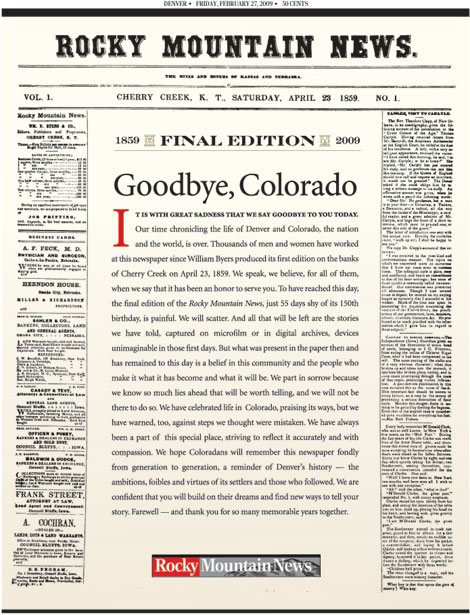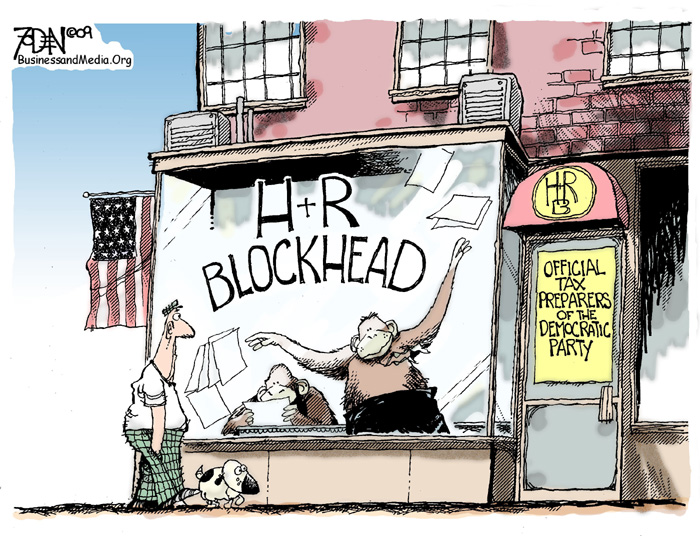While thinking about today’s post, I came across a piece on bloggingtips.com titled, “How to building traffic to your blogsite the natural way.” My assumption is that all of us who write these things do so because we want people to read–and perhaps respond–to our ideas; otherwise we’d keep diaries. But with several million blogs now on the web, it’s obvious that most blogs aren’t being read by many people. For example, despite the fact that I’ve written more than 250 posts, I’ve worked for a couple of newspapers that had more readers every day than the almost 37,000 total hits this blog has had in the almost 10 months I’ve been doing it.
The reason I bring all this up is because of a couple of comments I got yesterday. Since I’m guessing that most people don’t bother to read the comments (I admit that I rarely read them on other blogs, unless I intend to respond myself or just want to get a feel for the ideological range of an ongoing discussion), and because the respondents raised interesting points that I thought worth exploring and sharing a bit more widely, I thought I’d do so here. If you did read the comments, please forgive some repetition here.
Both comments (the first probably inspired the second) noted that I link to a high number of stories from CNN. One said she was somewhat skeptical of my use of those links, because she suspected I was “just trying to beat the system.” She was right about that–I’ll discuss how and why I’m letting CNN help me pimp my blog in more detail below.
The other respondent stated that I “didn’t seem to have a particular strong stand on things” and “kinda wander all over the place letting CNN, etc. power this blog”; she encouraged me to seek a wider range of sources. She also was at least partly right, in that often I do let mainstream news sites (and especially CNN–again, more on that below) set my agenda for the day.
I would note that there are some issues in particular on which I have taken a stand (prompting at least one reader to say I should be fired from my real job). You’ll find repeated complaints about Bush administration lies, the Iraq War, domestic spying, the Patriot Act, government secrecy, the Religious Right, John McCain’s dirty campaigning, voting irregularities, media lying (ranging from talk radio to bloggers to Photoshop), PUMAs, Sarah Palin’s hiding from the press, and Israeli military actions (Palin and Israel tend to draw more comments than most subjects, for some reason). The fact of the matter is, though, after the election there was less for me to complain about, at least temporarily (though I have criticized Barack Obama’s cabinet picks, his plans for Afghanistan, his “selective openness,” his generally conservative nature, and the way the switch to digital television has been handled).
Still, in general I agree that I do “wander” quite a bit within the constraints of “media and politics,” two subjects that allow a lot of latitude. When I’m busiest (as I am now, teaching three classes and advising a student newspaper, among other things), I tend not to do as much thinking or research for the blog as I do at times when I’m less busy. Also keep in mind that my Ph.D. was interdisciplinary (combining journalism, history and political science), so I like making connections between things that other people may not see.
One good thing about doing only one post per day is that there is no shortage of things related to media and/or politics that I find interesting, so on most days (including some days that I don’t initially intend to write anything) a CNN story will trigger something. I do think that CNN gives a more balanced perspective than perhaps any other site, anyway, and I still try to make sure I make posts clear and relatively complete (considering limited time and the relatively short space allowed by a blog post), though I do link to the New York Times, the Associated Press and even Fox News less often than I used to.
As seems to be true for many bloggers, writing a blog also is partly a way of thinking out loud. For me it’s also a way to keep track of things that I think it’s my job to keep track of, some of which I’ll end up using in classes (and might someday use in a future book or chapter). And it’s a way of sharing knowledge with a general audience, something that I think academics don’t do very well–part of why we sometimes get well-deserved “ivory tower””criticisms.
Though I sometimes make people angry, in general I’d far rather educate (or be educated), enlighten and entertain than to argue. I’ll let readers determine my success at those things. I certainly don’t do this just to irritate people (though I don’t mind doing so from time to time) or to scream at injustice in the world. As I wrote in the “About the Blog” section on my very first day back in April:
“A primary reason for this blog is the same as for many other things I do: my students at Whitworth University. As a teacher of media studies, media history and journalism skills classes, I want to use as many ways as possible to try to connect with and to learn from those students. I hope they–and you, whoever you may be–will join in the conversation.”
Regular readers will know that I also strongly agree with the idea about using other media and seeking alternative voices. That’s why the long list of links down the right side of this page includes links to various foreign newspapers (including al-Jazeera), and both liberal and conservative publications and bloggers. Even so, if I’m just commenting on something that happened, or using a news event as a starting point for discussion, I tend to trust CNN more than most.
There is another reason, I turn to CNN, though, and now I’ll reveal the secret that could in theory (assuming many people read this far) reduce my readership by increasing the number of people who start doing what I do. If you go to almost any CNN story, at the bottom you’ll see a line that states, “From the Blogs.” Click on that, and you’ll see two or three links to “blogs talking about this topic,” and, more importantly for my purposes, tow or three links to “blogs linking to this story.”
Perhpas because I try to combine clear but somewhat clever headlines with simple leads (simple for the computers to understand), I’ve been very successful in having my blog linked to CNN stories. Perhaps for the same reasons, a fair number of CNN readers then come to my site. Today is the 18th in a row that I’ve had at least 100 views, and on most of those days the majority of the visitors came via CNN.
My justification is that in this ongoing experiment I’m trying to boost “circulation” so that people might read a variety of other things that I have to offer. For example, a few days ago CNN stories apparently directly brought 145 readers to my site. Thirty-one more views seemed to come as a result of search engine search terms. But I had 266 page views that day, looking at 25 different posts, so apparently some of those readers hung around.
In addition, some of them come back. Today I’m over 115 page views so far, and only three people came directly from CNN links. For whatever reason, I seem to have developed a small but loyal following, and an unknown number of other bloggers–ranging from a blogger in Thailand to a reporter in South Carolina to a high school journalism teacher in Massachusetts to a journalism student in Oregon–have permanent links to my site. I also get a fair number of hits from my own students looking for resources, and of course quite a few via search engines. For example, the 25 terms used so far today to find my blog include “famous journalist,” “faith hill made fat,” “crazy chimp,” “flag at half mast,” “khalilzad y obama,” “prediction 2012 election,” “japanese gay married,” “george bush anthrax,” “hannity colmes brother in law,” ” and “james mcpherson” (I suspect most of those are looking for the famous Civil War general or the famous Civil War historian by the same name).
Increasing numbers isn’t the only thing that matters, of course, or I could simply keep doing what I did as an experiment back on Sept. 11. That day was my second-busiest ever in terms of traffic (topped only by the 876 views I got on Nov. 13, in that case with a lot of CNN help). The week of Sept. 11 and the next remain my busiest weeks, but the idea of repeating that titillating technique bugs me more from a moral perspective than does using stories that do relate to something I think worth saying, anyway. I’d obviously never make it in advertising or at Fox News (and I am frustrated to see CNN, Sports Illustrated and the Huffington Post, among others, also injecting more sex and sensationalism, no doubt for the same reason as my regular links to CNN–to attract readers). I will note that neither of my most popular posts overall–the Sept. 11 post and a July 3 piece about the flag been the most popular over time by quite a wide margin–links to CNN at all.
Finally, a note about one other recent comment: In talking about the “crazed chimp” and an offensive New York Post cartoon, one respondent wrote: “How many of you honestly believe they were trying to be racist with the cartoon? If they did make a mistake, are they not allowed to simply apologize for it? Do we as people not forgive people for making honest mistakes anymore?”
Well, as I noted in the orginal post, I’m willing to accept that the cartoonist didn’t have a racist intent, even if he and his editors are fairly clueless. And I fully agree that we should be able to accept apologies and move on–even if that’s not good enough for Al Sharpton, according to today’s reports. But if Reverend Al were the only one offended I wouldn’t have bothered writing about the incident.
Nonetheless, I also believe that those who are quick to be offended should also be quick to try to forgive and move on. That will do more to promote better race relations than probably anything ever done by Sharpton. Let’s move on from the cartoon, trying to learn from it. And please, can we move on from stores about the attack chimp himself? The media have flogged that story long enough.



